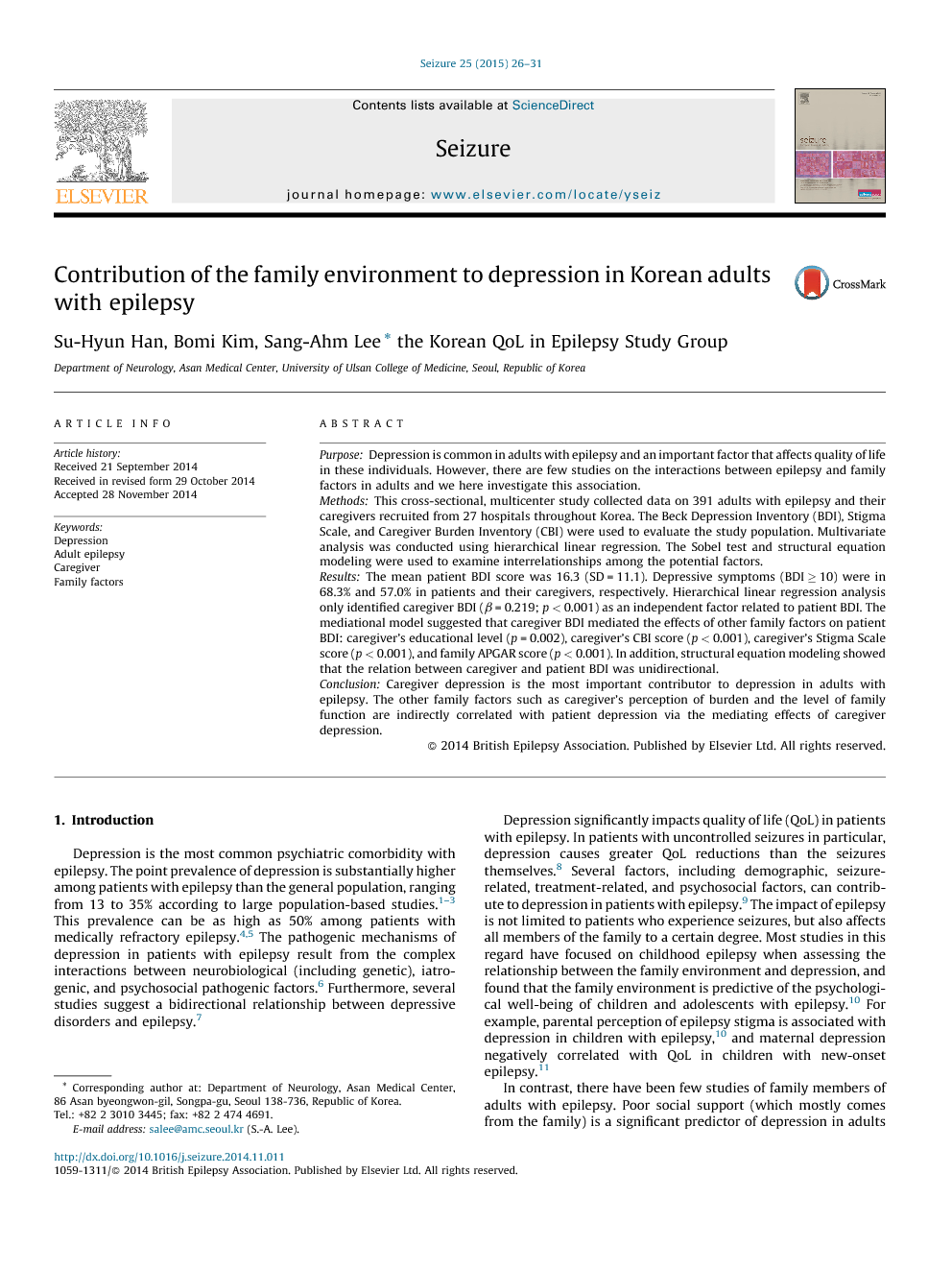ترجمه فارسی عنوان مقاله
نقش محیط خانواده در افسردگی در بزرگسالان کره ای مبتلا به صرع
عنوان انگلیسی
Contribution of the family environment to depression in Korean adults with epilepsy
| کد مقاله | سال انتشار | تعداد صفحات مقاله انگلیسی |
|---|---|---|
| 29797 | 2015 | 6 صفحه PDF |
منبع

Publisher : Elsevier - Science Direct (الزویر - ساینس دایرکت)
Journal : Seizure, Volume 25, February 2015, Pages 26–31
ترجمه کلمات کلیدی
عوامل افسردگی - صرع بزرگسالان - مراقب - خانواده -
کلمات کلیدی انگلیسی
Depression,Adult epilepsy,Caregiver,Family factors,

